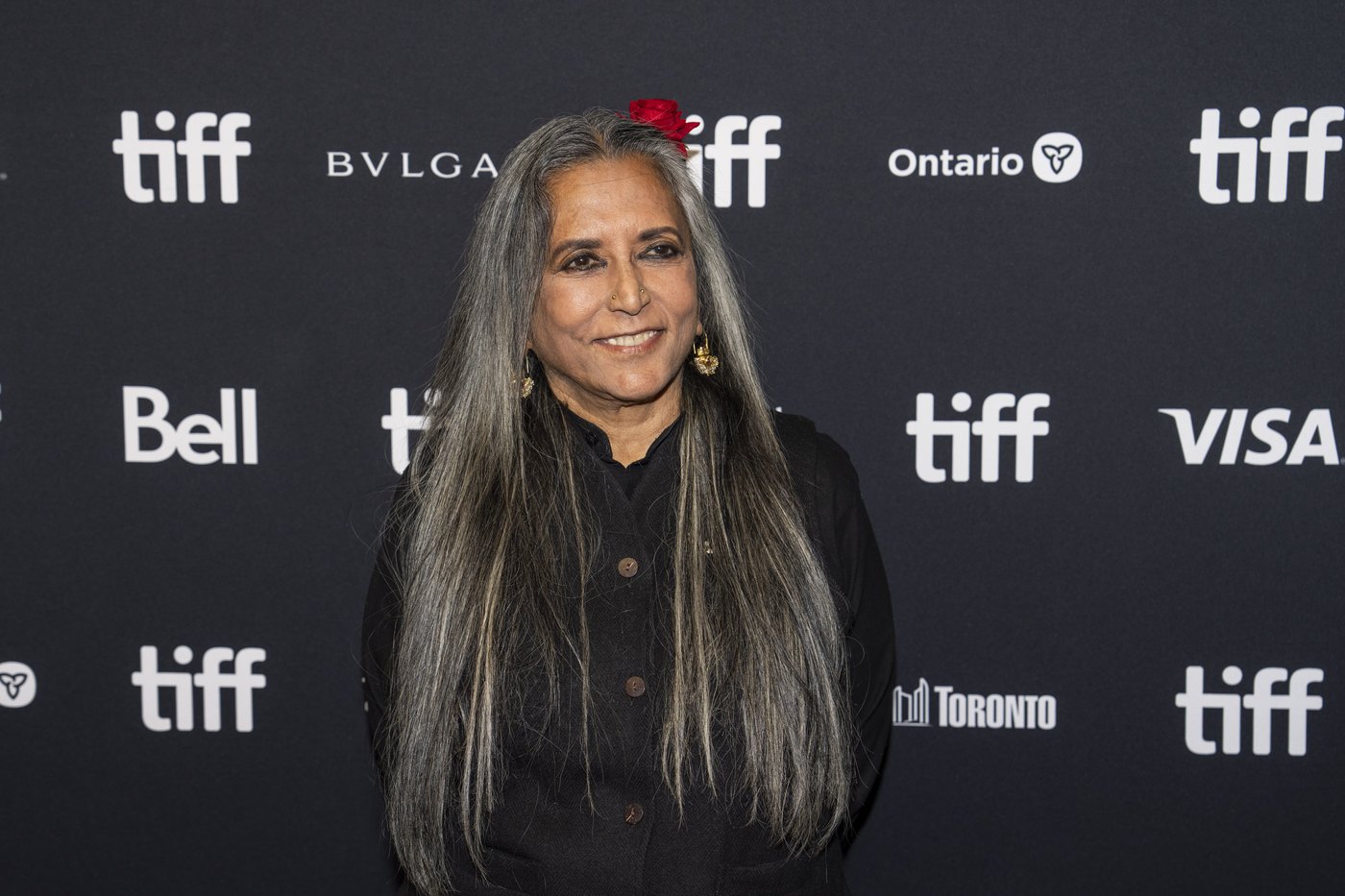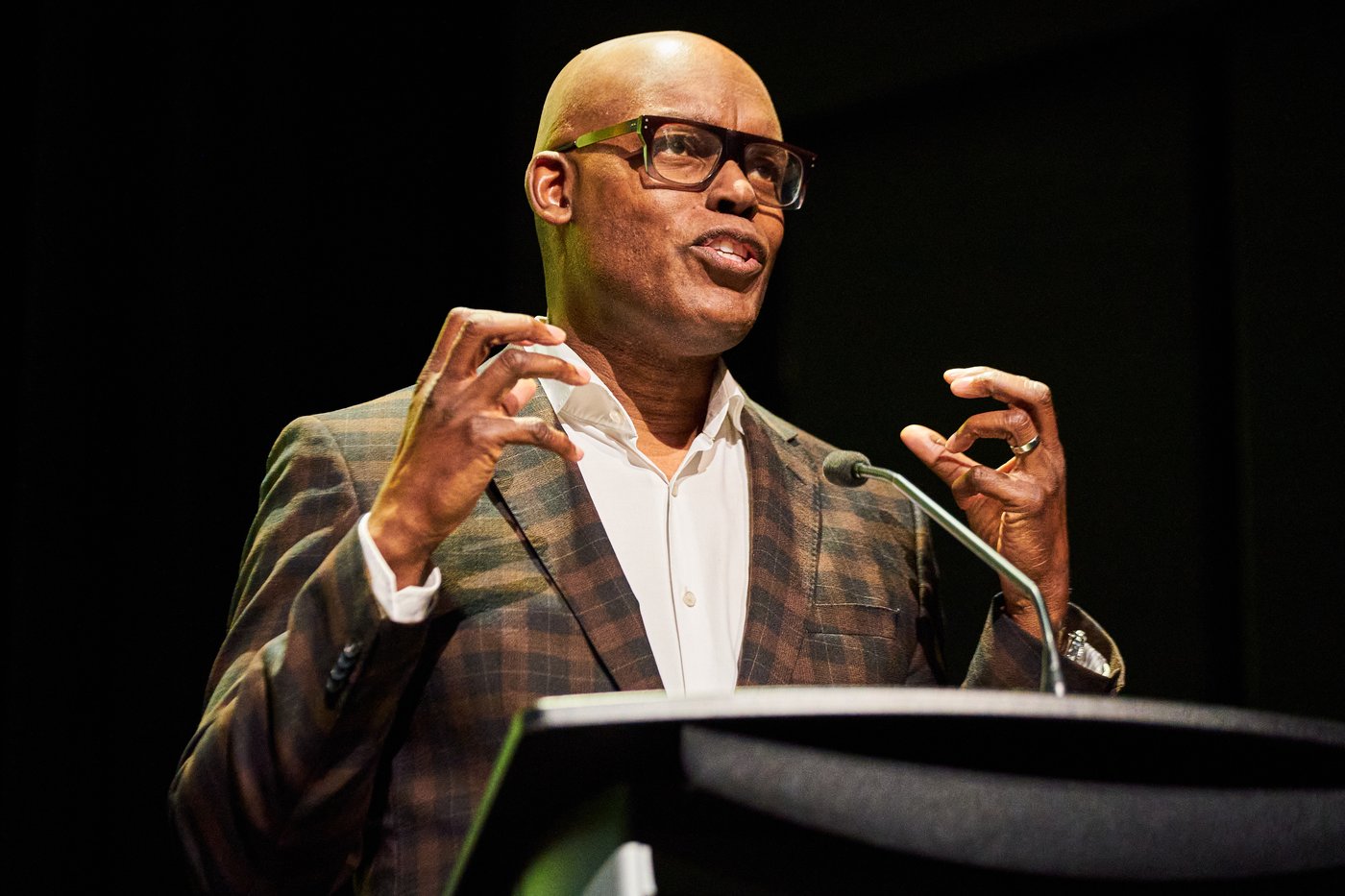Elevate your local knowledge
Sign up for the iNFOnews newsletter today!
Sign up for the iNFOnews newsletter today!
Selecting your primary region ensures you get the stories that matter to you first.

TORONTO — When the Toronto International Film Festival launched in 1976, Hollywood barely noticed. Fifty years later, it commands the world’s attention — sometimes reluctantly.
As TIFF celebrates its golden anniversary, it walks a tricky tightrope between global tastemaker, Canadian showcase, and public lightning rod.
Last month’s controversy over Barry Avrich’s “The Road Between Us” underscored that tension. The documentary, about a retired Israeli general who rescued his family during the Hamas attacks of Oct. 7, 2023, was pulled from the lineup over footage rights and security issues, sparking backlash from politicians, Jewish groups, and entertainment figures.
Days later, TIFF reinstated the film and promised clearer communication.
“It’s an increasingly complex world, and it is becoming politicized and polarized at the same time,” says Piers Handling, TIFF’s longtime former CEO, of the outcry.
“I don’t think festivals like TIFF should be afraid of these public debates. In fact, I think festivals should be the centre of them.”
The flare-up echoed last year’s firestorm around “Russians at War,” a film that follows Russian soldiers in Ukraine and attracted protests, which led TIFF to cancel screenings amid security concerns.
An interview with current festival CEO Cameron Bailey, booked before the “Road Between Us” controversy, was postponed by organizers and never rescheduled.
Handling says a willingness to provoke conversation has long been part of TIFF’s DNA. Over its half-century, the festival has grown from scrappy outsider to Oscar-launching powerhouse, weathering controversies from threats over its 1997 Balkan cinema program — accused of bias in depicting the Yugoslav conflict — to backlash over 2006 mockumentary “Death of a President.”
What feels different now, Handling argues, is the divisiveness of the climate.
“There’s no subtlety anymore allowed. You’re either for or against. But history exists in the grey areas,” he says.
The challenge, Handling says, is whether TIFF can continue exploring those grey areas while navigating pressures intensified by the last five years: a pandemic, industry strikes, sponsorship woes, and public protests.
“As a festival, you need to think through what your role actually is, what you should be doing, how you should be harbouring those debates,” says Handling, who stepped down in 2018.
“And I think that’s been lost a little bit in the COVID shuffle, because COVID forced everyone into survival mode. It’s ‘how are we gonna survive?’”
Survival, he says, often means favouring films that entertain rather than confront thornier issues.
“Maybe people aren’t interested in big issues right now; maybe they just want some kind of escape.”
TIFF has certainly leaned into star-driven crowd-pleasers in recent years — from the premiere of a Taylor Swift short film in 2022 to Pharrell Williams’ Lego biopic last year.
Writer-director Cameron Maitland feels TIFF is stretching itself thin by “trying to be everything to everyone,” chasing popcorn audiences, arthouse devotees, and politically engaged communities of all stripes.
“TIFF needs to figure out what it wants to be…. When people approach it year to year, they’re a little confused at what it is,” he says.
Handling says it’s become “increasingly difficult” for festivals to balance politically conscious programming with financial pressures.
“In a moment of crisis, you have to sometimes be bold and brave and be prepared to make tough decisions,” he says.
“You have to actually lead as opposed to follow.”
In its early days, TIFF thrived on risk. When it launched as the Festival of Festivals in 1976, co-founders William Marshall, Dusty Cohl, and Henk Van der Kolk rejected European festival formalities — no prizes, no red carpet, no black tie.
“They wanted to turn it into an anti-Cannes, an anti-Berlin, an anti-Venice,” says Handling.
Hollywood’s trust didn’t come easily. Studios pulled films at the last minute in TIFF’s inaugural year.
“The studios didn’t believe in film festivals, particularly not in Canada,” Marshall told the Canadian Press in 2015. Praise from Los Angeles critics for the first festival changed that.
“By ’77, they all came back saying, ‘Oh, we’d really like to help you.’ They didn’t really mean it, but they tried… and they sent us films they thought were dogs.”
So TIFF became a haven for daring, unconventional titles. Toronto filmmaker Atom Egoyan remembers attending as a student and discovering Charles Burnett’s 1978 indie drama “Killer of Sheep,” a portrait of Black working-class life in Los Angeles.
“That was really inspiring, to see a film made completely outside the system,” he says.
As TIFF carved out its identity, Canadian filmmakers were given a platform they never had — and they went to great lengths to be part of it.
In 1982, Egoyan and fellow director Bruce McDonald had their short films rejected, so they staged a guerrilla screening outside a TIFF gala.
“We were so desperate we rented a generator, a projector, and looped our movies in front of the old University Theatre,” Egoyan laughs.
“It got a lot of attention until the police asked us to leave.”
TIFF’s 1983 premiere of Lawrence Kasdan’s drama “The Big Chill” was a “game-changer,” says Egoyan. Its multiple Oscar nominations showed the festival could shape careers and spark cultural conversations.
“The miracle of TIFF is these films can emerge with this momentum that carries into awards season,” he adds, having earned two Oscar nods himself for 1998’s “The Sweet Hereafter.”
TIFF has also struck a few nerves along the way. Former programmer Steve Gravestock recalls many protests, including one over the 2004 documentary “Casuistry: The Art of Killing a Cat,” about an infamous Toronto animal-cruelty case.
“People freaked out,” he says, adding that then-documentary programmer Sean Farnell “got death threats on his answering machine.”
Gravestock argues festivals now face the added difficulty of presenting provocative work in an era when social media can amplify outrage.
“I’m not saying people don’t have a right to be angry, but I do think that how people feed into it, it’s sometimes just rage piling on rage into social media. And I don’t find that helpful,” he says.
Today, TIFF is a behemoth — it kicks off Thursday with a 291-film slate, including buzzy titles such as “The Smashing Machine” and “Frankenstein.” But with size comes scrutiny and questions about its identity.
“(TIFF) is so big that it’s tough to imagine it can last at this size, especially with changes in the cinema landscape and distribution. I do wonder, as TIFF moves forward, if it’s going to define itself more specifically,” Maitland says.
“What does it stand for?
Indian-Canadian filmmaker Deepa Mehta hopes TIFF continues its commitment to “celebrating Canada, celebrating the world, and screening contentious work.”
Looking back on the hurdles TIFF has faced over the past five years, she praises it for “trying to survive with as much dignity as possible” — in part by continuing to program films that reflect the world in all its complexity.
“How do you keep an audience interested? It’s with what you screen, not just which big star is coming down the red carpet.”
Her drama “Water” drew fierce backlash in India for its depiction of widows in early 20th-century Hindu society. Branded “anti-Hindu” by conservative groups, it sparked protests, threats, and even the destruction of her original sets in Varanasi. Still, TIFF opened its 2005 edition with the film, which later earned an Oscar nomination for best international feature.
“They never, ever backed away,” Mehta says.
Reflecting on the uproar over “The Road Between Us,” she argues TIFF should continue to program films on their merits, regardless of possible disruptions.
“Even though I hate the word controversy, I think if it starts a dialogue, it’s good,” she says.
“I’m a great supporter of Palestine, but I think you should give people a chance to see something, and then they can protest. I like to protest when I’ve seen something — if there’s any need to protest.”
After half a century of risk-taking, controversy, and triumphs, Handling just hopes TIFF continues daring its audiences — and keeps the conversation alive.
“There’s a tricky balance between both following what your public wants to see and leading them down roads that they’re totally unaware of,” he says.
“My hope is they will continue to privilege the public in that way.”
This report by The Canadian Press was first published Sept. 3, 2025.




This site is protected by reCAPTCHA and the Google Privacy Policy and Terms of Service apply.
Want to share your thoughts, add context, or connect with others in your community?
You must be logged in to post a comment.